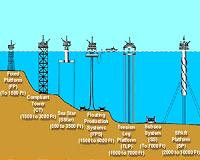 |
Washington (AFP) Oct 7, 2010 The White House Thursday rejected a preliminary report into the Gulf of Mexico oil spill which charged the government hid worst-case estimates and was incompetent in dealing with the disaster. President Barack Obama's aides pushed back against a strongly worded report written by staff researchers and presented to a national commission into the causes and impact of the spill spawned by a rig explosion in April. The report said the administration did not keep the public fully up to date on its own worst-case estimates of the amount of oil churning out of the ruptured BP well and also underestimated the actual flow rate early on. But White House spokesman Robert Gibbs insisted the administration was "as candid as we could be with the information that we had, when we had it." The report, which Gibbs pointed out will not necessarily reflect the final view of the commission, also found that low early estimates of the amount of oil flowing from the ruptured undersea well "undermined public confidence." "The federal government created the impression that it was either not fully competent to handle the spill or not fully candid with the American people about the scope of the problem," it said. But Gibbs insisted the administration never sought to cover up the true extent of the spill, arguing that such a disaster had never happened before, and techniques to measure the flow rate were developed on the fly. "There was nothing that we knew about flow rates from here that we didn't make public," Gibbs said. "There was never an effort to not put out the most accurate and timely information as soon as we had it. We got different estimates based on different technology and the availability of more enhanced photography." The report also said that the National Oceanic and Atmospheric Administration (NOAA) asked the Office of Management and Budget for permission to unveil its worst-case estimates of the disaster, but was refused. Gibbs said that the report was sent back to NOAA because it was flawed and did not contain sufficient analysis from all available sources -- adding that the Office of Management and Budget habitually acted in a similar fashion with other agencies. "OMB did not think the modeling took into account what was going on and then asked them to take that into account," he said, noting that the impact of skimming, dispersant and recovery operations on oil spill estimates. Shortly after the BP-leased oil rig exploded on April 20, the Coast Guard estimated that a relatively manageable 1,000 barrels a day was flowing into the Gulf of Mexico. But by August, Energy Secretary Steven Chu estimated that 62,000 barrels a day had in fact been gushing into the Gulf in the early stages, declining slightly to 53,000 barrels by the time the well was capped in July. The staff report found no evidence that recovery operations were scaled back due to low estimates of the amount of oil in the Gulf, saying responders insisted they acted in line with worst-case scenarios. "Even if responders are correct, however, loss of the public's trust during a disaster is not an incidental public relations problem," the report said. "The absence of trust fuels public fears, and those fears in turn can cause major harm," it said, adding that the public may be now be less confident in government assurances that Gulf seafood is safe. The White House however argued that it was dealing with an "unprecedented situation" and was learning about the true scope of the disaster only as it went along. "This was 5,000 feet below the ocean, the greatest environmental disaster that our country has faced, met with the greatest federal response," Gibbs said. The staff report also criticized Carol Browner, who heads Obama's climate change policy in the White House, after she said on television in early August that three-quarters of the spilled oil was "gone." The staff report however said that the oil was potentially bio-degrading but was not "gone." The BP disaster sullied hundreds of miles of coastline from Texas to Florida, killing wildlife and devastating key local industries such as tourism and fishing. Eleven workers died in the initial explosion. US authorities last week shut down a special command center after the well was permanently sealed.
Share This Article With Planet Earth
Related Links Powering The World in the 21st Century at Energy-Daily.com
 Euro lawmakers reject deepwater drilling ban call
Euro lawmakers reject deepwater drilling ban callBrussels (AFP) Oct 7, 2010 The European parliament rejected Thursday calls to ban deepwater drilling in Europe's waters after a giant US Gulf oil spill, although Scottish lawmakers fear a hollow victory. While European lawmakers voted to tighten security restrictions and increase compensation to be paid by companies under any repeat of the US Deepwater Horizon tragedy, they came out against a moratorium awaiting detai ... read more |
|
| The content herein, unless otherwise known to be public domain, are Copyright 1995-2010 - SpaceDaily. AFP and UPI Wire Stories are copyright Agence France-Presse and United Press International. ESA Portal Reports are copyright European Space Agency. All NASA sourced material is public domain. Additional copyrights may apply in whole or part to other bona fide parties. Advertising does not imply endorsement,agreement or approval of any opinions, statements or information provided by SpaceDaily on any Web page published or hosted by SpaceDaily. Privacy Statement |